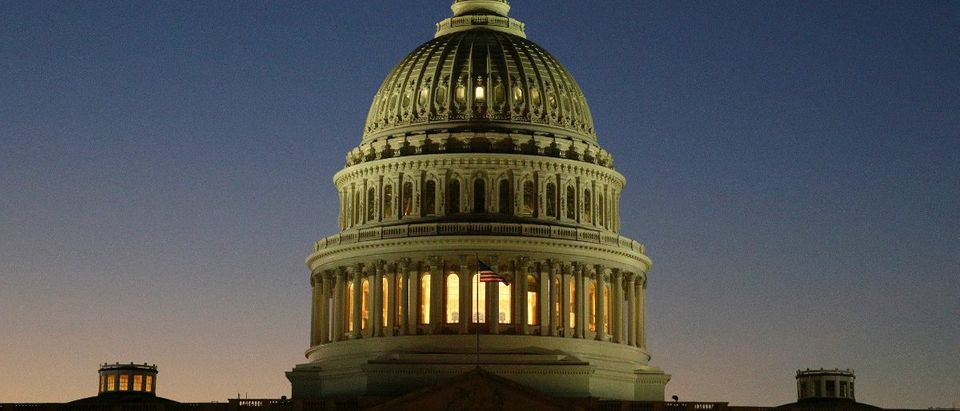This week I read a Walter Williams column in which he questions the assumption that it’s necessarily a bad thing for the United States to spend more buying imported goods and services from any given this country than we make from exporting goods and services to that country. This is called a “current account deficit,” and as Professor Williams points out, China is a well-known case in point. He goes on to explain that focusing exclusively on this account can be misleading, because it doesn’t reflect money the United States receives from “direct foreign investment, such as the purchase or construction of machinery, buildings or whole manufacturing plants” or “portfolio investment, such as purchases of stocks and bonds.”
Economists track those inflows of money in the “capital account.” Thus, to get a more accurate picture of our situation with a given nation we have to consider how the balance in our current account compares with the balance in our capital account. In regard to China, for example, Mr. Williams points out that “Chinese people are investing more money into the U.S …than Americans are investing in China.” Thus, the money the Chinese receive from us as we purchase goods and services from them is flowing back to us in the form of capital investment.
Given this relationship, Williams concludes that “we know that we’re being deceived when a politician talks only about the current account deficit, without a word about the capital account surplus.” So, what such a politician is actually doing is promising to rob this or that American Peter in order to benefit this or that American Paul, and vice-versa. And, since both Peter and Paul fail to understand what’s in the ledger, politicians can slyly practice this legerdemain on both at the same time.
Though this involves prevarication, it may, at any given moment, reflect what needs to be done as the political process registers the relative pain Americans feel themselves to be in and convincingly promise to alleviate it, at least in perception. If the pain results from adaptive changes that will end up benefitting the nation as a whole, the prevarication involved may be compared to the bedside manner a practiced surgeon must employ as he persuades a patient to undergo the inevitable risk and pain of a difficult operation.
However, if the prescribed operation is part of a case study in which some subjects are promised treatment, and then deprived of it without their knowledge and consent, the deceit involved ceases to be a tolerable disguise. It becomes, instead, a malicious lie, deployed, with malice aforethought, to serve the practitioner’s ambition at the expense of the patient’s life and health. To avoid even the appearance of this sort of abuse, medical standards require that the subjects involved in such trials be fully informed of the risks involved. If those risks arise from things only practiced medical practitioners know and understand, they are required to explain what they know, as best they can, to their patients.
Tragically, no such standards apply in the political arena. In fact, these days the whole political and governmental process seems purposely constructed to hide and obscure from view the full import of the consequences involved in issues profoundly important to the good of the nation as a whole. Professor Williams discussion of issues of international trade and finance illustrates this with respect to how money issues affect different segments of the body politic. But what of the issues that involve fatal damage to the whole that is greater than the sum of its parts, the national identity that consists in the moral substance that draws the parts together to form a union that each part inwardly reflects and understands, but which otherwise outwardly appears only when all are challenged to act together, to avoid some danger, or to strive toward some achievement that benefits the whole?
Such are the issues involving right and rights. In regard to these issues, some politicians promise laws and edicts that guarantee respect for each individual’s fundamental “right” to love (worship) whomever they please, even though what pleases some denies and disparages the fundamental rightness of loving (worshipping) in the way that serves to inform, preserve and perpetuate all the whole of humanity. Such are the issues that demand respect for the conception of humanity itself, as a constraint upon choice, even though freedom of choice is essential to the conception of our humanity that gives rise to our special and individual self-respect.
In Professor Williams discussion of the “current account” prevarication, the demand to end harm to some ignores (and therefore masks) the good that is done to others (and vice-versa.) Similarly, with the prevarication in respect (or disrespect) of the issues of right and rights, some demand that all embrace their freedom to choose (abortion, their gender identity, their understanding of family) for themselves, even if that freedom involves discarding any standard by which to recognize and preserve the claim of humanity in all. For if there is no basis for human identity but human choice, what becomes of those whose claim to humanity others choose to disregard? Or perhaps, in the end, we must discard our preoccupation with humanity—in which event, to what standard shall they appeal who still have the sense that they are worthy of special respect, but have no power to impress that sense on any but themselves?


